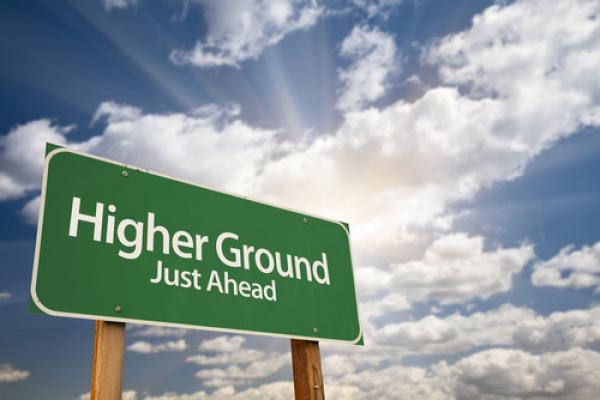Here in the Upper Midwest (I live in Minnesota), the importance of higher ground is not just metaphorical, as snowmelt-fed flood waters rise to envelope communities. People, quite literally, are forced to higher ground by floods.
It is interesting, too, what happens when that higher ground, the literal higher ground, is sought. Necessarily, there are more people in a smaller area; that’s the nature of it. Diverse groups are forced together. We know these images from the news: the floating cars, and then the displaced people together in a school gym, talking. The power of that second image is that it shows an unexpected, shared space. People have grabbed what they could and fled to this place, often by walking uphill, and now they find themselves together.
When the metaphorical waters rise and destroy what we know or count on, people do the same thing, but that higher ground is a broad mutual faith that encompasses the belief that there is something greater than ourselves, that there must be a reason for these tragedies; we turn to God. Recently, we have seen this happen in Boston and in West, Texas. At the memorial for the victims of the explosion in West, held at Baylor University, President Barack Obama spoke openly about faith.
Read the Full Article

